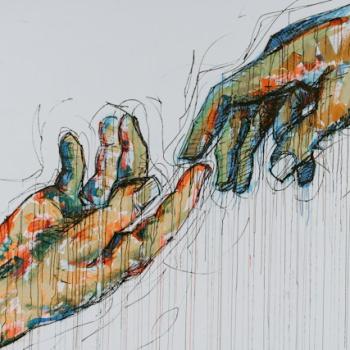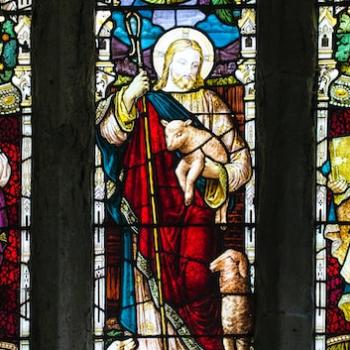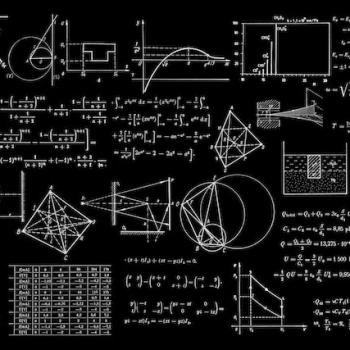
I would make a terrible detective for about a million reasons. Chief among them is that I frequently fail to notice things others describe as obvious. My parents completely redid their kitchen many moons ago, and I failed to even notice. I did think it odd that the Ritz Crackers weren’t in their usual spot in the cabinet. It took a while before I realized that the “cabinet” was now a “pantry.”
My lack of sensory awareness has caused me some headaches at times. I once got all the way home from an evening event before I heard someone say, “Where did you get that coat?” It didn’t have the same cut as mine, and to be honest, it wasn’t even the same color. (Navy and black are close!) I had accidentally swiped a lovely outer-garment and left some unlucky gal at the same event with my off-brand winter wooly.
Finding the Evidence
Yes, I wouldn’t last a week as a detective. My client would give me the theory and ask for the evidence to back it up. “I think my husband is cheating on me, so I need you to get the photos.” I’d bet money that I would get lost on the way to the stake-out and would forget what the husband looked like resulting in photos of the wrong guy. My powers of deduction are easily surpassed by most fifth graders.
But before you revoke my Mensa card, consider this. Although my deductive reasoning skills may be lacking, I’m a downright savant when it comes to a line of inquiry that’s more inductive in nature. Or at least, I’d like to think so. Instead of starting with the premise and finding examples to support it, I love to look at individual examples of very different things and find their common denominator. I get a rush from reading an author’s different works to draw a conclusion about that writer’s worldview. Give me any three current events or trends, and I’ll draw you a relevant conclusion about modern society or culture.
And give me this Sunday’s three Scripture readings and I’ll draw you a straight line from Jesus’ concrete words about money to a more abstract Biblical truth about wisdom. To do that, we just need to start with this week’s gospel reading and work backwards.
I can’t help but feel sorry for the poor sap who asks Jesus, “What must I do to inherit eternal life” (Mark 10: 17)? Jesus reminds him to keep the commandments of Moses, but the man says no biggie, I’ve been doing that all my life. Then Jesus says one thing remains to be done – sell all you have, give it to the poor, and follow Jesus. The poor guy “went away sad, for he had many possessions” (22).
Widening the Lens
Now, this may just be Jesus’ warning about putting too much stock in earthly riches. But if we widen the lens just a bit, it might be saying something more. After all, money isn’t evil of itself, right? Money has been used to bring about a lot of good, so perhaps it’s one’s relationship to money that is the issue. And widening the lens some more, maybe there’s more to think of than just money. Maybe it’s a prohibition about anything – anything at all – that we think we need outside of God.
How do I know? Sunday’s second reading has a powerful clue. Paul writes in his letter to the Hebrews about how “penetrating” the word of God is. It’s so powerful it comes “between soul and spirit, joints and marrow” (4: 12). The best line of all is the last one: “Everything is naked and exposed to the eyes of him to whom we must render an account” (13).
It’s an interested choice of words – “naked and exposed.” When we give away – or lose – all our money, we are left naked and exposed. When our reputation is tarnished or our good name is questioned, we are left naked and exposed. When our mental or physical health is taken from us, we are left naked and exposed. When our loved ones die and grief and pain are all we have, we are left naked and exposed.
I think Jesus’ message to the rule-following, rich guy – and to each of us – is pretty clear. Following Jesus means giving up all those things that we rely on, all those things we think we need. It means being naked and exposed.
Seeing Clearly
Why? That’s what Sunday’s first reading explains. The writer of the Book of Wisdom says that when “the spirit of wisdom came to me,” all the riches of the world became nothing in comparison (7: 7). Wisdom then is the recognition that all the things we think we must have can be impediments to the one thing we truly need – God. It is in choosing to be naked and exposed before God, relying on nothing outside of God, that we genuinely become rich in the best possible way.
I’m keeping my day job. I’d make a horrible detective. But when I can turn the tables on the usual logic, I find it easier to see what’s truly in front of me. Sometimes, just widening the lens has a way of help us see more clearly. This Sunday, working from the specifics of the gospel back to the premise of the second reading back further to universal truth about wisdom in the first is an eye-opening journey worth taking this week.











